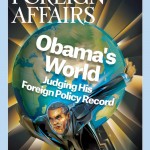Ever since 9/11, the United States has provided Pakistan with a steady supply of security and non-security assistance. U.S. officials have justified these generous transfers—worth more than $30 billion since 2002—on the grounds that they secure Pakistan’s ongoing cooperation in Afghanistan, bolster Pakistan’s ability to fight terrorism, and give the U.S. government influence over the country’s ever-expanding nuclear weapons program. Failing to deliver this support, the argument runs, could dramatically weaken the will and capacity of Pakistan’s security forces and possibly even lead to the collapse of the Pakistani state. In that event, Pakistan’s nuclear know-how, material, or weapons could well fall into the hands of nefarious actors.
Yet that logic is fundamentally flawed. Many of the weapons Washington gives Islamabad are ill suited to fighting terrorism, and continued transfers will do nothing to convince the Pakistani government to end its long-standing support for terrorist groups. In fact, U.S. assistance gives Pakistan an incentive to foster a sense of insecurity concerning its nuclear arsenal and expanding ranks of jihadists.
Christine Fair is Associate Professor in the Security Studies Program at Georgetown University’s Edmund A. Walsh School of Foreign Service and the author of Fighting to the End: The Pakistan Army’s Way of War. Follow her on Twitter @CChristineFair.
Sumit Ganguly is Professor of Political Science and Rabindranath Tagore Chair in Indian Cultures and Civilizations at Indiana University, Bloomington. He is the author of the forthcoming book Deadly Impasse: India and Pakistan at the Dawn of a New Century.
This article appeared in the Foreign Affairs 2015 September/October edition. It is republished here with permission
This article was originally published by Foreign Affairs. You can read the rest of the article here.
You can read exclusive content from Gateway House: Indian Council on Global Relations, here.
Copyright © 2015 by the Council on Foreign Relations, Inc.


